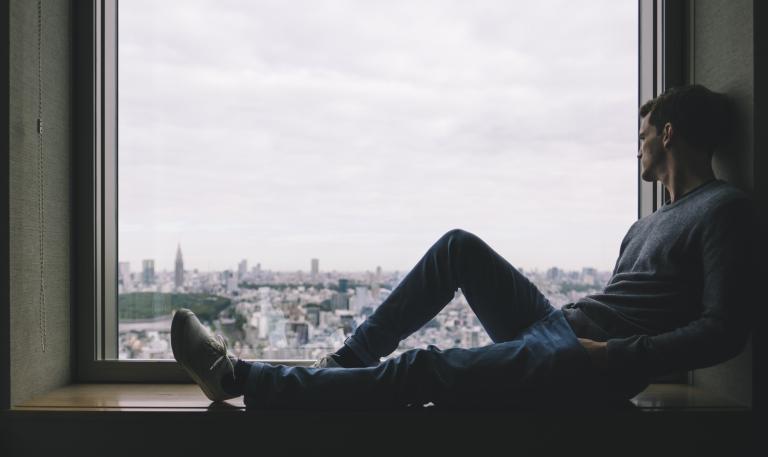For the least several years, I have taken the time to binge watch each season of the “The Walking Dead.” It’s not a great show. But, I’m into it now and I want to know if these people are ever going to get out of the mess they’re in, so I’ll probably stick with it.
One thing the show does well, and one reason for its huge appeal, is its depiction of how easily everything we take for granted could end. It’s a frightening message, sure, but also one a lot of people long to hear. I mean, there’s a reason people love post-apocalyptic narratives of any stripe. Most of us intuit that, in spite of appearances, society is on the edge.
We live in a time where the created social and political order is nearly inescapable. We wake early to corporate music in order to get in our mass produced car and hit the road which is itself part of an enormous network of roads created and maintained by a faceless and indifferent government.
We spend our days laboring as part of a complex system for people up the chain who, if they are aware of us at all, regard us as a fungible resource. When we get home, we lose ourselves in a haze of factory processed food, drink, and corporate media. That’s a normal day for lots of people.
It’s easy to mistake this world, this manufactured, made up world, for the natural one, to begin to think that the structures on which we depend daily have always been there. It’s easy to think they will always be there.
That’s not necessarily the case. Things can change quickly. This is true both on a personal and a societal level. On the whole, we and the society we inhabit are more fragile than we admit.
This brings to mind a recent post by Mark Baxter. In it, Mark wrote.
We love to read and talk about being antifragile. It is one of my favorite concepts. A fascinating book by Taleb.
However, in reality, most of us are anything but antifragile. We are susceptible to all sorts of shit.
This is true. We are all fragile to some degree. But, there is a taboo against admitting it. In a bizarre irony, as our culture has become ever more confessional with strangers breaking down in tears on daytime television and others posting every moment of their lives to YouTube, we have become ever more ashamed of our personal failings.
This is in large part because what we imagine to be failings aren’t necessarily failings at all, but simply the inability to remold ourselves in the corporate image sold to us by the cultural establishment. Having teeth that are less than sparkling white is not a real failure. Living a life full of mundane moments does not lower our value. It makes us normal.
The net effect of the millions of images of perfection we are subjected to is shame about our real selves, about our imperfection, about our fragility.
Now, imagine living in the older world, before you had in your pocket a tap into a non-stop stream of commercial images and monetized fantasies. Your guideline for normal would not be the Instagram stream of some minor league model, but your family, your neighbors, the people in your church.
People in the older world were less fragile, less likely to break than we are, simply by virtue of being under less pressure. If they fit in with their community, that was enough.
We are made more fragile both because we live under greater pressure to present a manufactured image of ourselves to others and because the community that anchored previous generations has become, for us, largely extinct. We are a society of unmoored, confused people, fragile and desperate for home.
Amplify this personal situation across a population and you can see the precariousness of our situation. We are not quite yet to a Walking Dead style apocalypse. On the surface, things continue to function.
But, surfaces are never the full reality.
Our society has been filled for years with a shared sense of dread. This feeling does not arise from nowhere. All of us know our own fragility; we know how that fragility is stressed even more by a society that has replaced family and community with images, meaningless pleasure and distraction. We know deep down that others are just like us, that they too are hiding a reservoir of pain behind an increasingly weakened dam of denial.
We sense things cannot go on as they are much longer. In our fragility and weakness, we bluff and posture and curate our online profiles to make us seem stronger than we are. But, all the time, one eye is on that dam holding back the forces of chaos unleashed inside our hearts, and we tremble because we know, that dam, like all fragile things, will sooner or later shatter into a million awful pieces.
_________________________________________
Thank you for reading this post. If you found it valuable, please share it on social media using one of the buttons below. You may also want to support my work by leaving a tip in the tip jar on the main page or by supporting me on Patreon.











